India's DRS trial could be bad news for England's batsmen
- Published
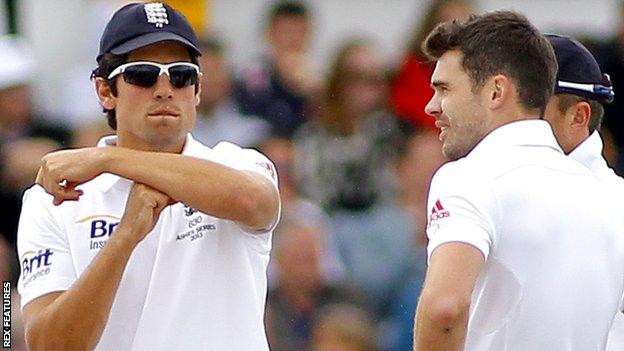
Teams get two chances each to review an umpire's decision during a Test innings, with that figure being reset again after 80 overs
There might have been a few concerned England batsmen when news filtered through that the decision review system (DRS) will be in place for their tour of India next month.
The BCCI, which governs the game in India, has agreed to trial the technology against Alastair Cook's side in the five-match Test series which begins in Rajkot on 9 November.
Whatever you think of DRS, which uses different types of technology to determine if a batsman should be given out, it's very good that it's now being standardised.
Everybody should play with it or nobody plays with it. At least now it brings everybody into line to play cricket together under the same regulations.
However, on pitches which are bound to suit the spinners - an area where India excel - and wear appreciably over the five days of a Test, I imagine the decision will help the Indians immensely.
Playing spinners with DRS in place is an altogether different and more challenging prospect than without it and it will make India more difficult to beat for England.
That's not the main point though: it's good India have joined in with what everyone else has been doing for a few years.
Why are India happy to implement it now?
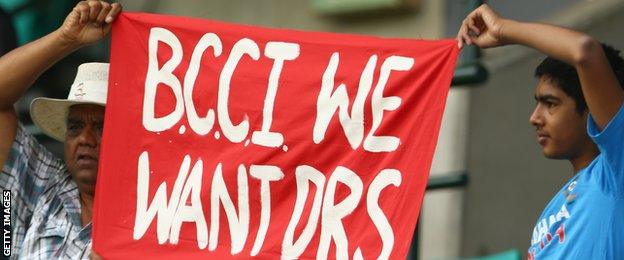
In recent years, many India fans have been asking for their team to begin using DRS
That's an interesting question and many of the answers lie in the fact there has been a changing of the guard at the top of Indian cricket recently.
That has brought about a much more open mind to these things. Their head coach Anil Kumble, who was opposed to the DRS system to begin with, has now changed his view.
With a number of new players coming into the side, he's been able to show that it might possibly be the right thing for his side.
Beforehand, batsmen like Sachin Tendulkar, for instance, were opposed to it.
They felt the opposition would always keep a review up their sleeve especially for them because they were such key players.
Ultimately, however, it's as simple as a change of attitude within the administration of the Indian cricket team which has led to this decision.
Once we get onto the pitch, I think India, under their innovative new captain Virat Kohli, will use it well.
Why will DRS make it more difficult for England's batsmen?
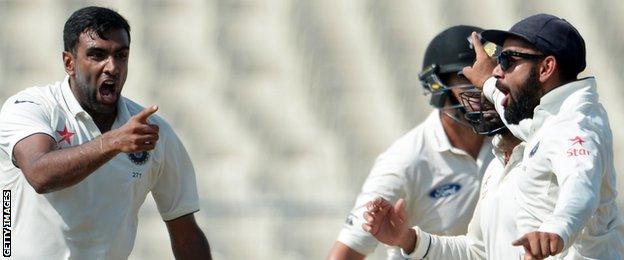
DRS was first trialled in Test cricket in 2008, a year in which 272 wickets were taken in 45 Tests by spinners in Asia - compared to 376 in 47 matches in 2015. In comparison, seam bowlers took 229 wickets in 2008 in Asia and 237 in 2015
Spin bowlers tend to have more success on the turning pitches of the subcontinent, and India have the world's number one bowler - off-spinner Ravichandran Ashwin - in their ranks.
England's batsmen must be careful how they play the spinning ball. For instance, you can't just plant your pad and play around the ball because of the risk of getting out lbw.
We've seen in the current Test match in Chittagong how central the DRS system is to games on the subcontinent.
Moeen Ali overturned three lbw decisions to remain at the crease and score a determined 68.
Those decisions were reversed because the ball was shown to be missing the stumps, but if it comes down to fine margins and the umpire has already given a batsman out then it will stay that way.
That's the challenge for England, and one which they are dealing with in Bangladesh at the moment.
Jonathan Agnew was speaking to BBC Sport's Marc Higginson
Moeen Ali thanks Joe Root for lbw review advice
- Published21 October 2016
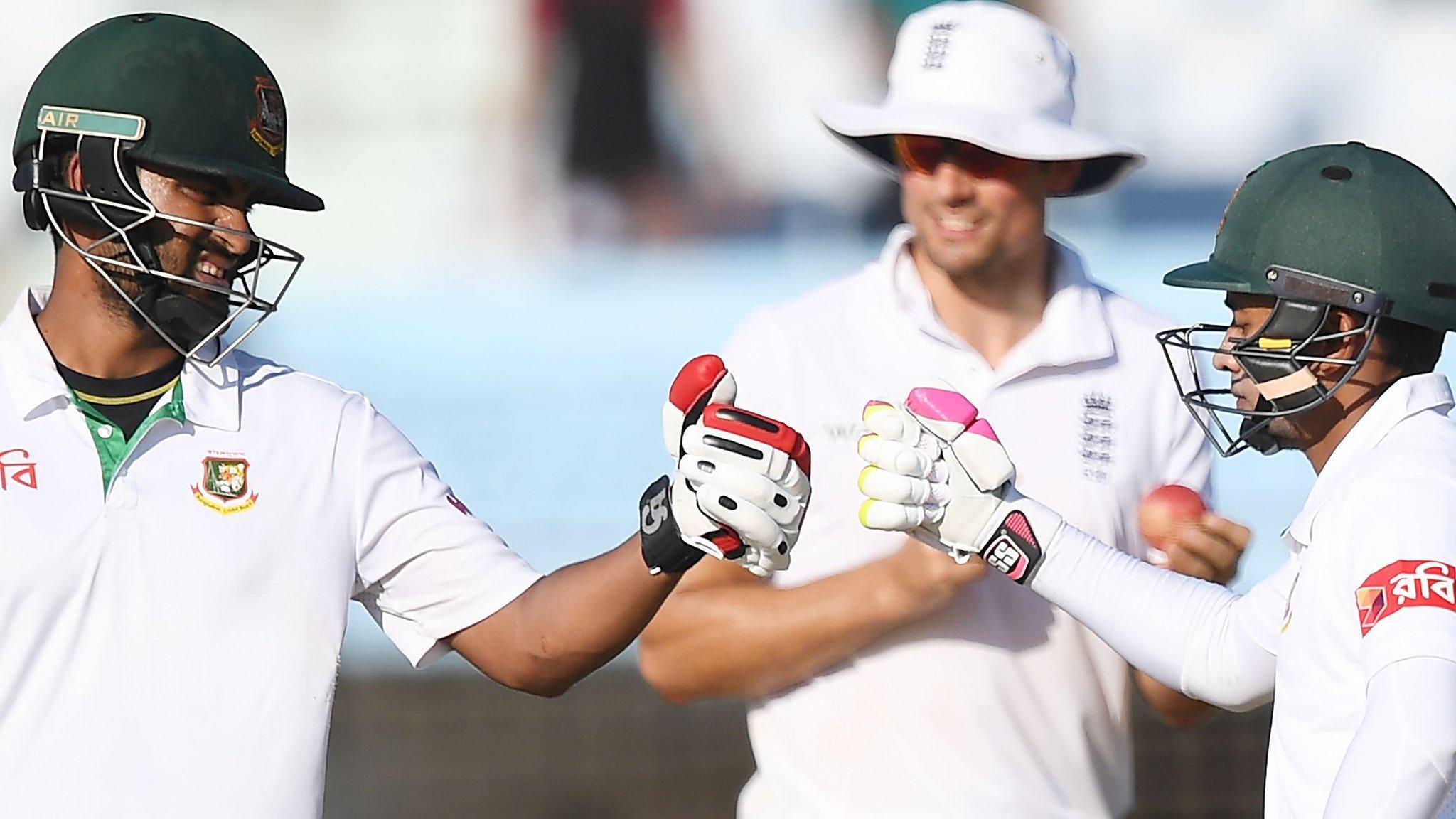
- Published14 October 2016

- Published21 October 2016
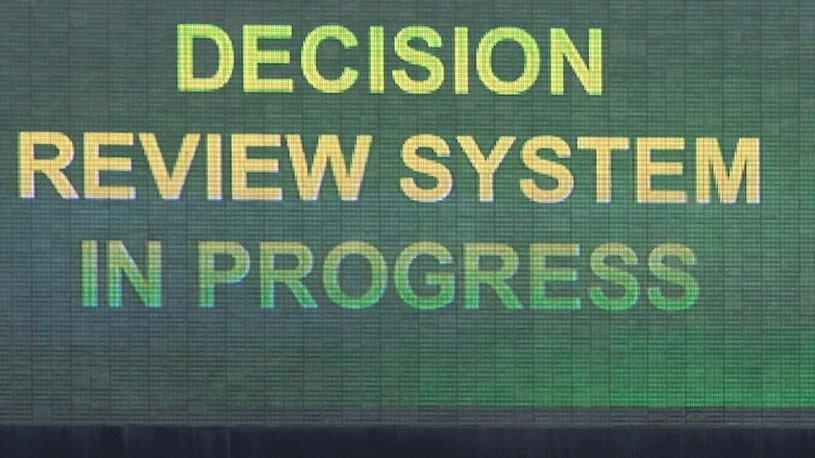
- Published21 October 2016

- Published10 March 2019

- Published15 May 2018

- Published18 October 2019

